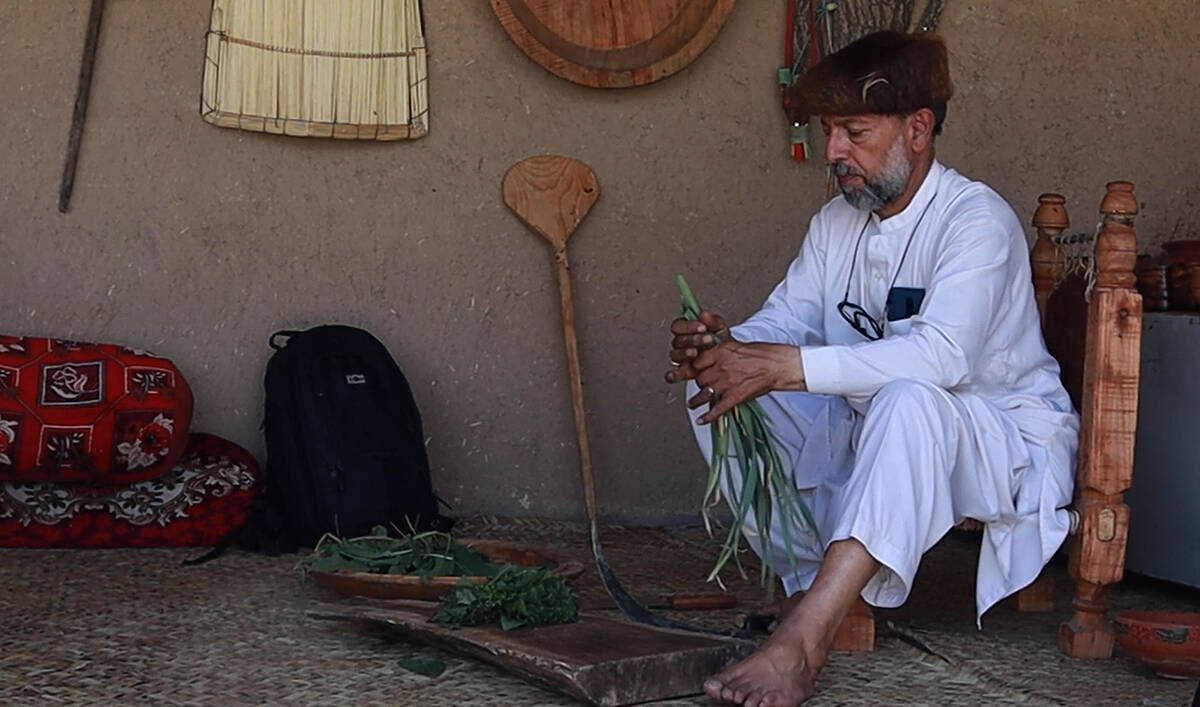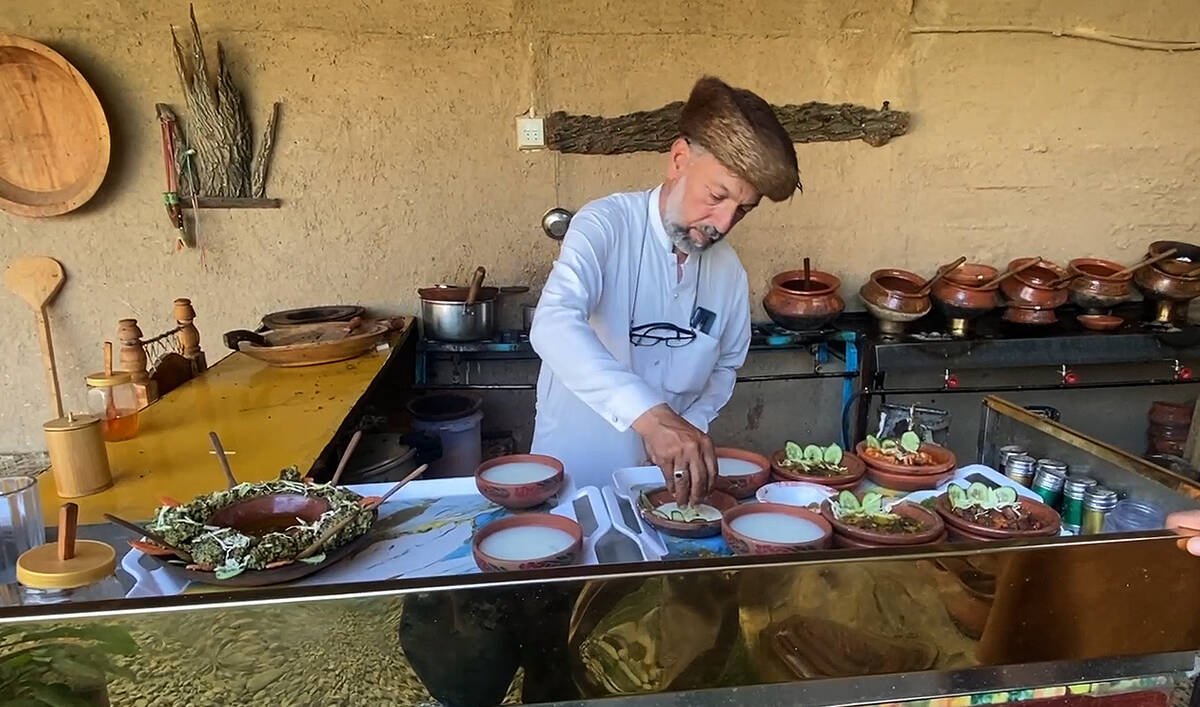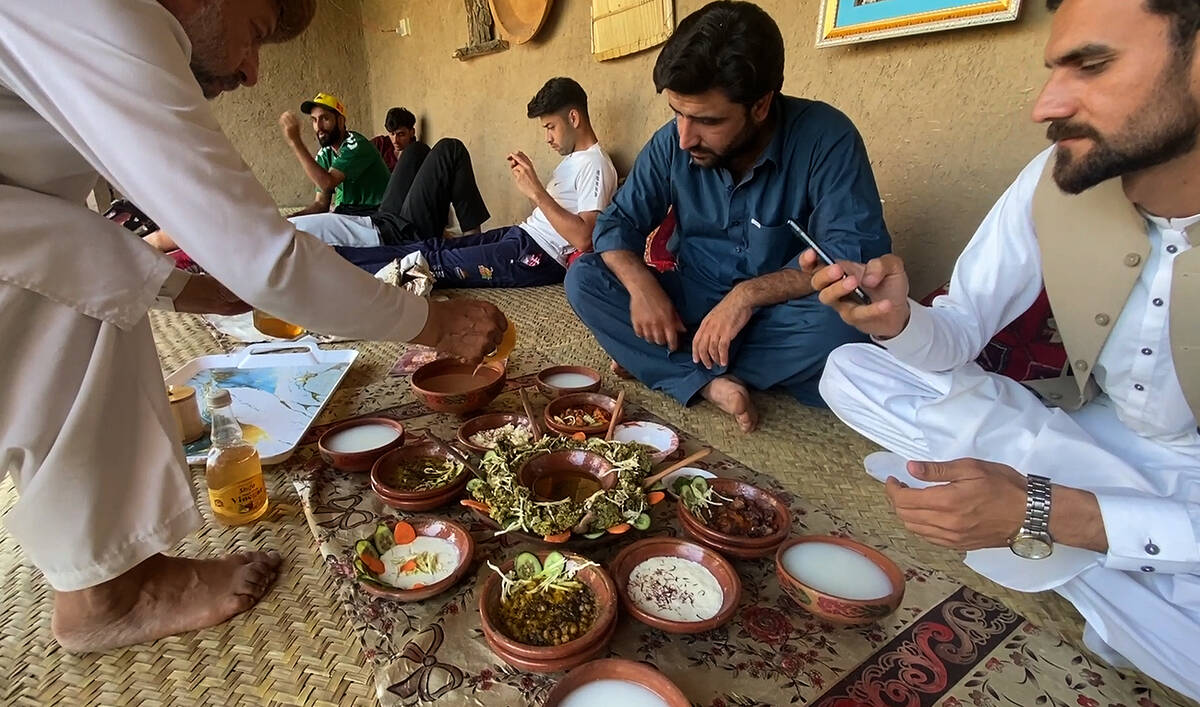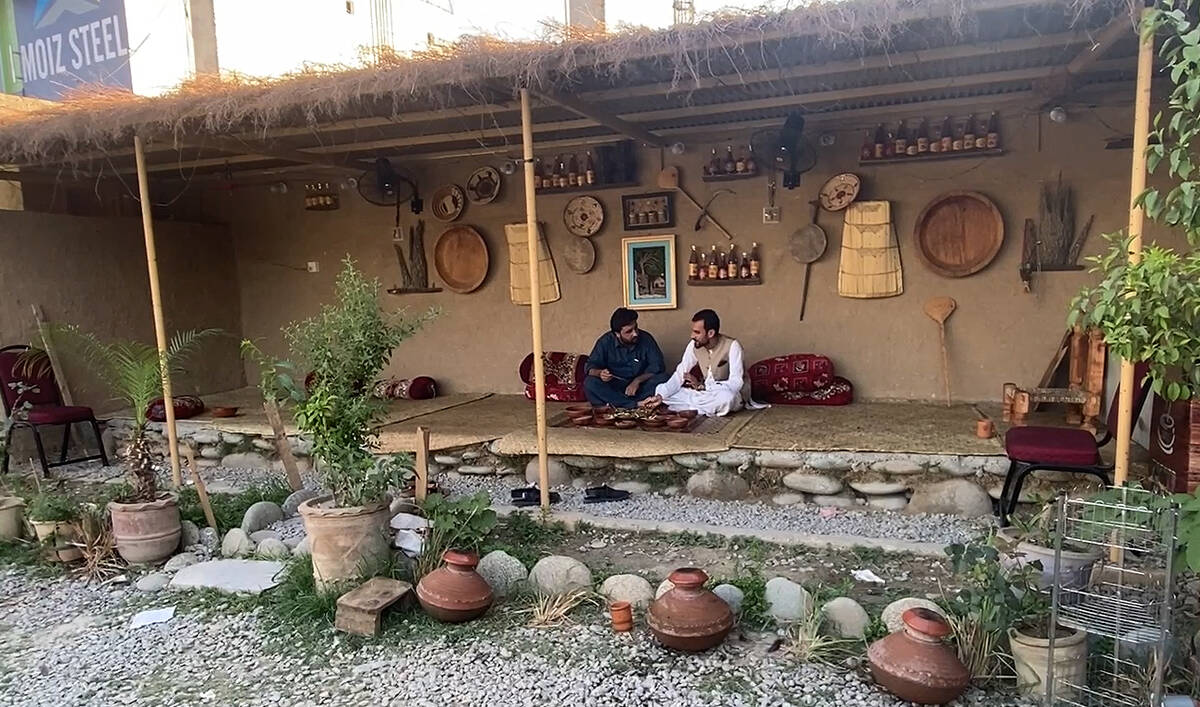ISLAMABAD: When winter is in full swing, with temperatures across Pakistan dropping dramatically, a warm pink drink with cardamom, pistachios and some salt can provide a great respite. As Arab News will tell you how to brew, and we are sure this Kashmiri chai is going to become your cup of tea.
Also known as noon chai (“noon” meaning salt in many South Asian languages) and gulabi chai (“gulabi” means pink in Urdu and Punjabi), Kashmiri tea is made from green tea leaves that have been rolled into small balls, also known as gunpowder. Its signature pink hue comes from a specific brewing process.
When the tea is boiled through and becomes brown, baking soda is tossed into the water and sodium bicarbonate turns its color into a saturated red hue. Mixed with milk or cream, the drink becomes deliciously baby pink.
Kashmiri chai is not a light on the belly sort of drink. Often made with heavy cream or full-fat milk, it is customizable with salt, sugar and nut garnish – all usually the drinker’s choice. You can drown sugar in it to match the overall saccharine aesthetic of the drink, or you can throw in a bunch of nuts and control its sweetness with salt. Kashmiri chai is traditionally not served as a sweet forward tea, but Pakistanis like to have it for dessert.
Making Kashmiri chai at home has a nostalgic and luxurious feel to it, but it requires some patience and elbow grease to get the mix cooked properly. The following tried and tested recipe by Karachi-based food blog Mirchi Tales will help you do it just right.
Ingredients:
1 liter of water
4 teaspoons Kashmiri chai leaves (1 teaspoon for a 250 ml cup)
½ teaspoon baking soda
500 ml ice-cold water or ice-cubes
1 liter of milk
½ teaspoon salt
3-4 crushed cardamom/elaichi pods
Almonds and pistachios crushed to garnish
Sugar to taste
Instructions:
Heat one liter of water in a large and wide saucepan. Once it boils, add the tea leaves and let the mixture boil for 10-15 minutes or until it reduces to about half the initial amount.
Turn heat to low and add baking soda. The soda will bubble up and there will be a hint of pink around the edges. Too much baking soda can result in a bitter aftertaste, so be careful. Cook the mixture on medium heat for three to four minutes until it turns brown with hints of red. Turn off the heat, and strain the green tea.
Fill a jug with 500 ml of ice-cold water. Add a few ice-cubes to make sure it is chilled.
Take a large spoon or soup ladle and stir the tea mixture by pouring and re-pouring it from a height. This is known as “paitha lagana” in Urdu. Pour and re-pour using one hand and add ice-cold water slowly from the other hand. Continue doing this for at least five to 10 minutes as this is what brings out the pink color. Once you are done and the color of the tea is dark red, strain it to another saucepan.
The tea for Kashmiri chai is ready and can be poured into a jug and kept in the fridge for a week or so until you decide to mix it with milk. Based on the quantity in the recipe, you should have around one liter of tea.
Heat the tea in a saucepan. Add milk to taste. The ratio is 1:1, that is for every 500 ml of tea, add 500 ml of milk. For creamier tea add more milk.
Add crushed cardamom seeds, salt and optionally sugar. Once it starts boiling, lower heat to simmer and cook for a minimum of 15-20 minutes. Keep an eye on the tea to make sure it does not boil over, and if necessary add more milk.
Pour into mugs and add crushed almonds and pistachios for garnish.






















